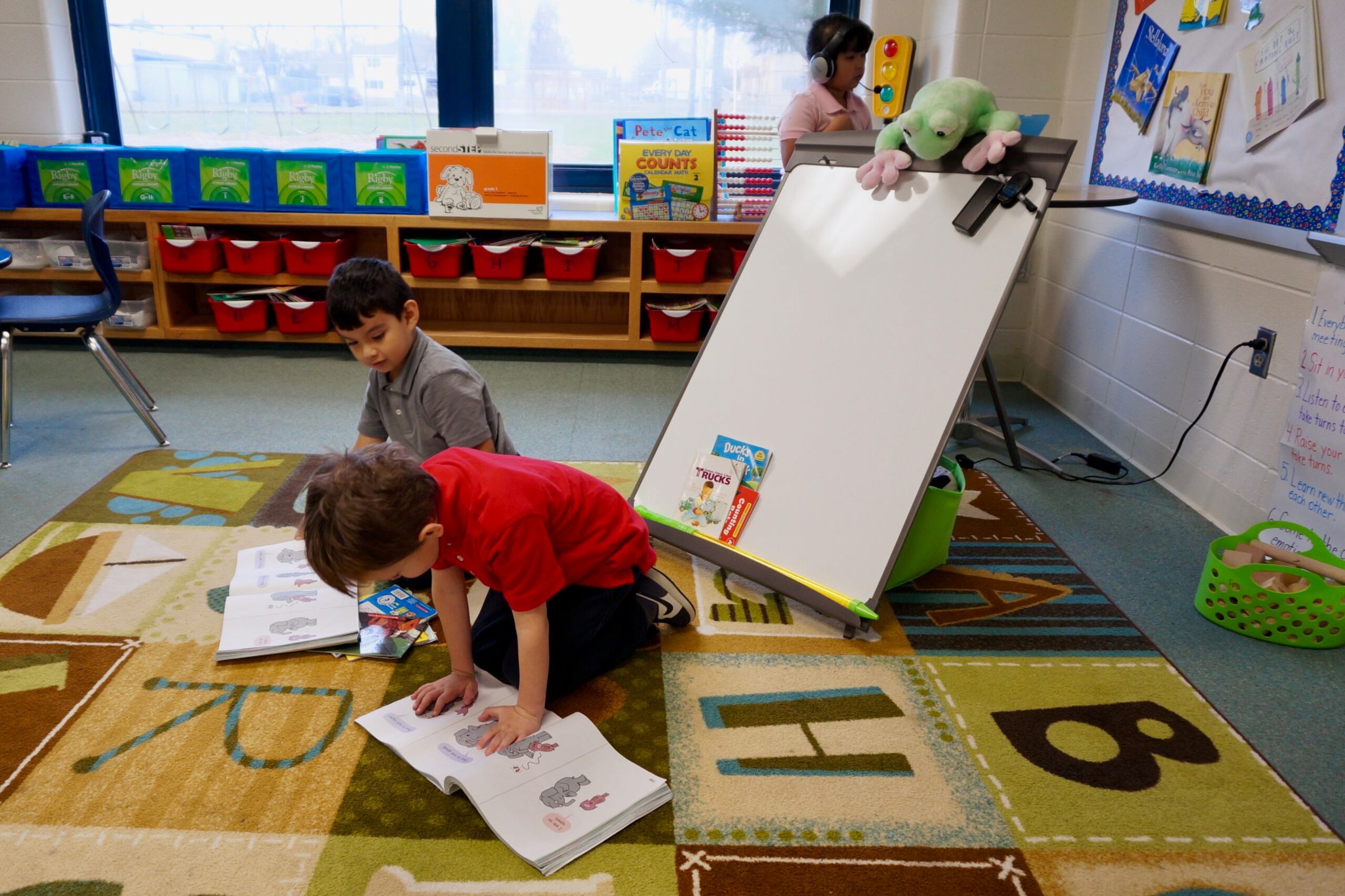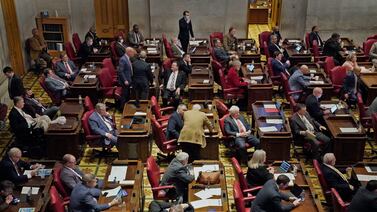Illinois should create a state agency to oversee early education instead of relying on multiple agencies steering different programs with little accountability or transparency, according to a draft recommendation from a statewide commission.
It should also spend almost seven times the amount it does on early childhood education, the group said, an ambitious goal in a budget year marked by a pandemic, rising unemployment, and the defeat of a graduated income tax proposal aimed at easing Illinois’ chronic budget crunch.
Gov. J.B. Pritzker convened the panel last year to help streamline funding and drive improvements. The 29-person commission is expected to deliver multiple recommendations to the governor by March 2021, including a set of ambitious funding goals.
Two of the commission’s co-chairs, state Senator Andy Manar and advocate George Davis, previewed the recommendations Thursday night in a town hall for providers, advocates and policymakers. Currently, Illinois spends about $1.9 billion on early education programs, including state-funded preschool, child care subsidies for low-income working parents, and initiatives for infants and toddlers. Chicago also has fueled its universal prekindergarten expansion with a chunk of those dollars.
After studying the issue for a year, the commission — made up of legislators, policymakers, and government officials — estimated that Illinois should be spending about $13 billion on early childhood education, which is closer to what it spends on its K-12 schools. (Illinois has twice the number of children enrolled in K-12 schools as early learners, but it spends $5 on K-12 for about every $1 on children under age 5.)
Members of the commission agree a centralized system would allow policymakers and state leaders to send money to where it is most needed and provide for greater predictability and stability for child care providers. Currently, different early learning programs are steered by a mishmash of agencies, chiefly the Illinois State Board of Education, the Illinois Department of Human Services, and the Department of Family and Children Services.
At the virtual town hall Thursday night, providers asked commissioners how a new agency would help solve chronic workforce problems. The state’s child care workers are often women of color who earn significantly less than their counterparts in public school districts.
As cities like Chicago have expanded pre-kindergarten in public schools, one unintended consequence has been a bifurcated system in which some teachers are paid on a union pay scale, while teachers in community centers and private preschools are paid substantially less.
Addressing workforce concerns has been a charge of the commission.
One commenter on Thursday said that COVID-19 had helped magnify that issue. “We hear so much talk about public school teachers’ concerns on social distancing — what about our social distancing? Is there any consideration about direct compensation to child care staff — especially those that have worked through peak pandemic for essential workers? Child care will never be considered an honorable position if they are not compensated accordingly.”
Other questions from providers and participants included how private child care centers would benefit from changes at the state level; where special education programs and early intervention might fall in line for budget increases and support; and whether child care workers could have priority for COVID-19 vaccinations.
Some also asked how state-level changes might impact Chicago, which also is making moves to reorganize its fractured early learning system.
“One thing we hope to see is a system that is streamlined from the state to the local level,” said Davis, the former executive director of the Rockford Human Services Department.
Asked by Chalkbeat how realistic the commission’s funding goals are given the state’s budget woes, Manar likened the early education campaign to one years earlier that resulted in a more equitable rewrite of the state’s K-12 funding formula.
“We obviously can’t ignore the budget challenges we face today,” he said at Thursday’s town hall. “Are we going to be able to plunk down the money and make the system the way we want it? No. That’s not being a defeatist. That’s recognizing the reality.”
But, he added, “having a map, and charting it out, understanding the costs and knowing where the gaps are, and streamlining things so that providers have a less difficult time accessing funds, those will be valuable (steps) to creating the system we want in the state.”
The funding commission plans to hold three more virtual town halls, on Dec. 16, Jan. 6, 2021, and Jan. 14, 2021. Click here for more information.








